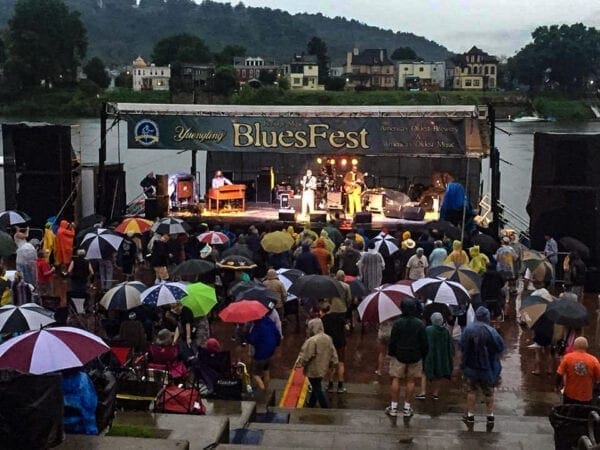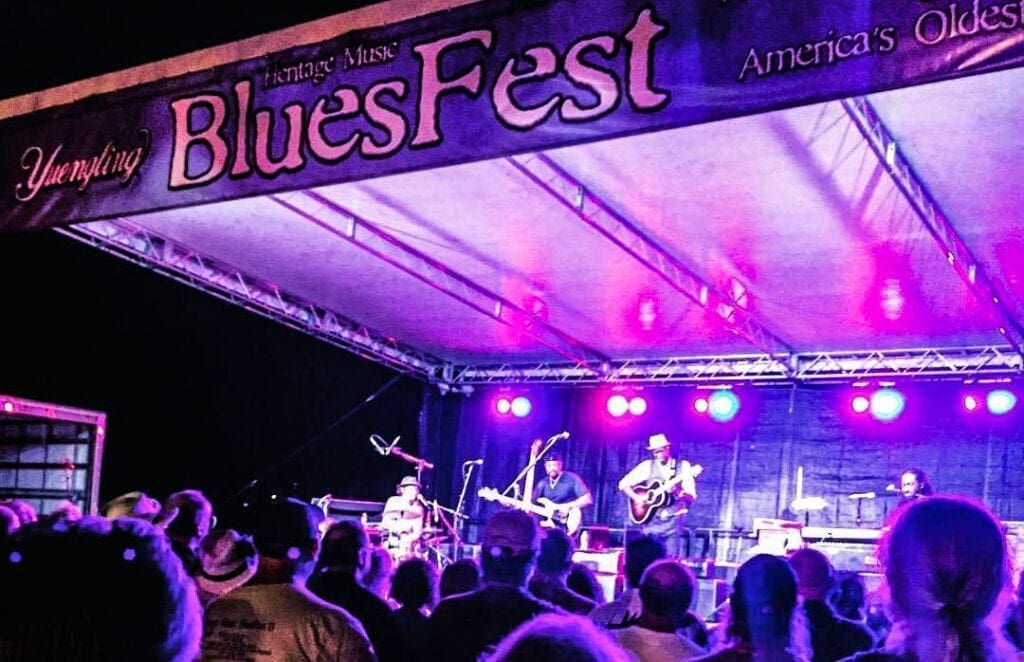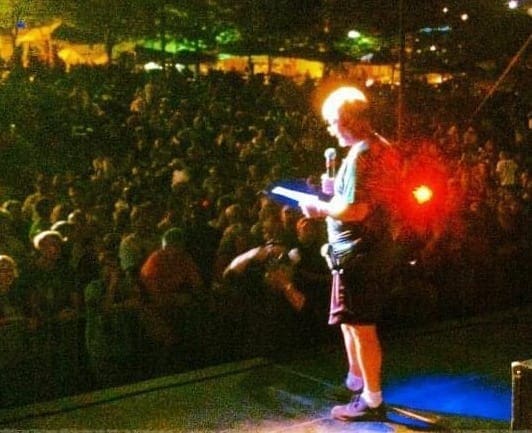Bruce Wheeler hated it.
The co-founder of the Wheeling Heritage Bluesfest had to cancel the 20th annual event, a three-day affair with some folks flying in to see the best of the blues, but most plans for the 2021 event already are in the books.
But how many of the festivals that take place throughout the Upper Ohio Valley can continue after a canceled summer? That is why Wheeler hasn’t blinded himself to what else could work in Wheeling at Heritage Port.
More than 20 years ago, Wheeler believed three festivals could prosper with a folk festival in June, a jazz fest in July, and, of course, a blues bash in August. The folk and jazz events never took place, and the August festival was a financial challenge for more than a few years. In 2015, the Heritage Bluefest was recognized as one of the top blues events in the United States.
So, what’s possible?
“What I would create today is an alternative Americana festival with a terrific mix of a lot of different genres,” Wheeler explained. “There could be a little of bluegrass, and then country, and then something else. I think that kind of festival would work on the riverfront.
“If I were 20 years younger, I would jump all over that idea just like I did with Bluesfest, but I would certainly help if someone wanted to do something like that,” he continued. “There are a lot of quality artists out there that would work for a festival like that. They may not be big-ticket performers, but they are very talented and I think such a show could work here in Wheeling for a full weekend.”

Cold, Hard Cash
Overhead.
Venue cost. Employees. Contractors like lights, stage, and sound. Performers. Sanitation. Security. But wait, there’s more …
“For total event costs for this kind of event these days would be between $150,000 and $250,000,” Wheeler estimated. “If you can find $250,000 in sponsorships, that means you can have a free event. If not, well, like I said, the bills do have to get paid.
“If it is a ticketed event instead then you have to look at your venue to see how many tickets you can sell, and then you have to go looking for sponsors to fill the gaps,” he said. “It’s really not brain surgery, but it is dollars out and dollars in. That’s how it works.”

He’d Do It, But …
Bruce Wheeler was 47 years old when the inaugural Bluefest took place, and he almost lost his house, his wife, and, well, everything else in his life.
But then something happened.
“That’s why, if I were 20 years younger, I would run with this idea,” Wheeler admitted. “But at this point, I don’t know if I have an extra 20 in me to get something like that started. It takes a lot of work because in the beginning, you have to assemble a great lineup, and you have to get the word out not just here in Wheeling but to this entire region.
“Now, today we have social media that could help with that so I wouldn’t expect it to be as difficult as it was for Bluesfest 20 years ago, but I think it would still be a challenge unless someone came forward with a lot of cash for marketing,” he explained. “The first few years for Bluesfest were tough because local fans didn’t buy-in until, I think the fourth year, and once that happened, we’ve had a great run.”

The First Steps
Wheeler admits now that when he launched his efforts to stage a three-day paid event at Wheeling’s Heritage Port, he did so after conducting very little research. Yup, he went with his gut.
These days, though, the co-founder is aware of the process one must endure to be able to present something similar on the Friendly City’s riverfront.
“Well, the first thing you have to do is lose your mind,” Wheeler joked. “Seriously, though, I think we could get a group of people together and just ask how something new could get started. That’s because of what has happened with Bluesfest over the years. There are a lot of people who will come to town for a weekend event so that means they will need places to stay. So, that is a piece of that puzzle.
“When you are looking to start a multi-day event, the group of people who gather will become shareholders because they have something to gain just like the hotels would,” he explained. “You also have to decide if it is a ticketed event or a free event so immediately you know how many sponsors you’ll need and to what level. The bills have to paid, that is for sure, so before announcing anything there has to be confidence that the money will be there.”

Becoming Reality
Once that most difficult task is complete, the time arrives for figuring logistics, financing marketing, finalizing the lineup, and finding a lookalike.
A lookalike?
“There are all kinds of events across the country that someone could use as their model,” Wheeler said. “So, taking a look at all of those events is a good idea because you may be able to find something similar that you could tie-in with so the events are not staged on the same weekend. That’s really important, and it is something I didn’t take into account when I was starting Bluesfest. It has worked out, of course, but if there was an established blues show somewhere on this side of the country, it would have been trouble.
“Like I said, I am willing to talk to anybody, for what it is worth,” he confirmed. “Not every summer is going to be like this summer … at least I hope not. We were really looking forward to this year because it was our 20th and we had scheduled a great lineup. It was going to be a big year for us.”


